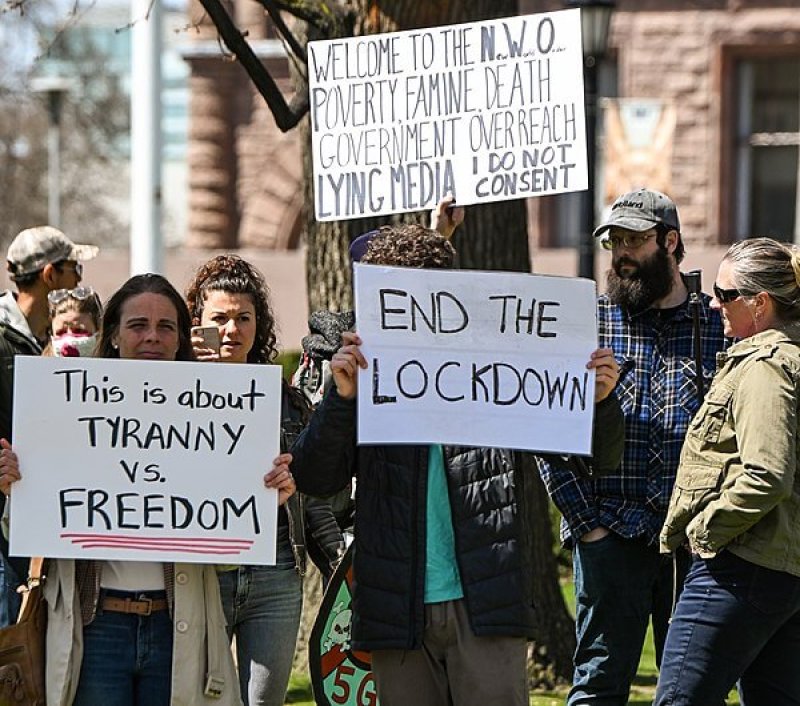Lockdowns during the first COVID-19 wave in the spring of 2020 only reduced COVID-19 mortality by .2% in the U.S. and Europe, according to a Johns Hopkins University meta-analysis of several studies.
Researchers also pointed out other unintended consequences of lockdowns, such as rising unemployment, reduced schooling, an increase in domestic violence incidents, and surging drug overdoses.
From May 2020 to April 2021, the U.S. recorded 100,306 drug overdose deaths, a 28.5% increase from the 78,056 deaths that were recorded in the previous 12-month period, according to CDC data.
A study from the National Commission on COVID-19 and Criminal Justice last year found that domestic violence incidents increased 8.1% in the U.S. after lockdown orders were issued.
About 97% of U.S. teachers said that their students have experienced learning loss during the coronavirus pandemic, according to a Horace Mann survey last year.
The unemployment rate peaked nationwide at 14.8% in April 2020, but declined to 3.9% in December, which is still slightly higher than the 3.5% rate it was at in February 2020.
[Editor’s note: Below is an excerpt from the study “A literature review and meta-analysis of the effects of lockdowns on COVID-19 mortality,” published in the journal Studies in Applied Economics.]
Overall, we conclude that lockdowns are not an effective way of reducing mortality rates during a pandemic, at least not during the first wave of the COVID-19 pandemic… The use of lockdowns is a unique feature of the COVID-19 pandemic. Lockdowns have not been used to such a large extent during any of the pandemics of the past century.
However, lockdowns during the initial phase of the COVID-19 pandemic have had devastating effects. They have contributed to reducing economic activity, raising unemployment, reducing schooling, causing political unrest, contributing to domestic violence, and undermining liberal democracy.
These costs to society must be compared to the benefits of lockdowns, which our meta-analysis has shown are marginal at best. Such a standard benefit-cost calculation leads to a strong conclusion: lockdowns should be rejected out of hand as a pandemic policy instrument.
This is an excerpt. Read the Johns Hopkins study here. Read the original Fox News post here.































